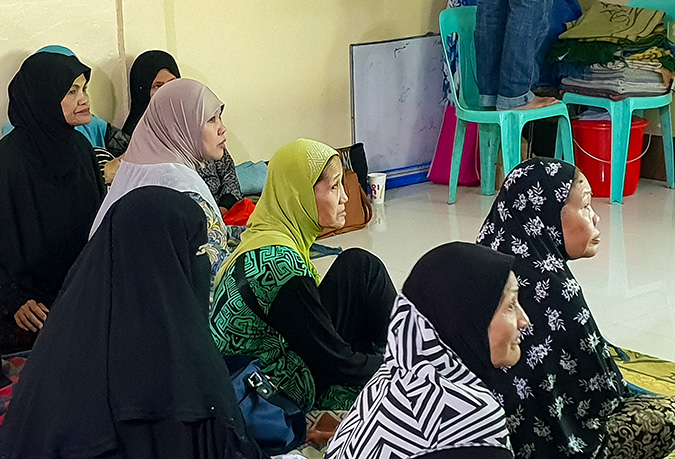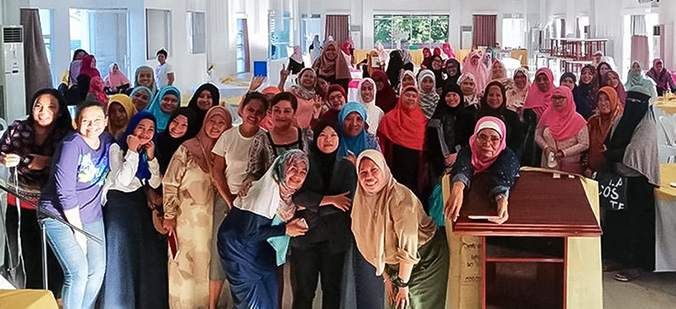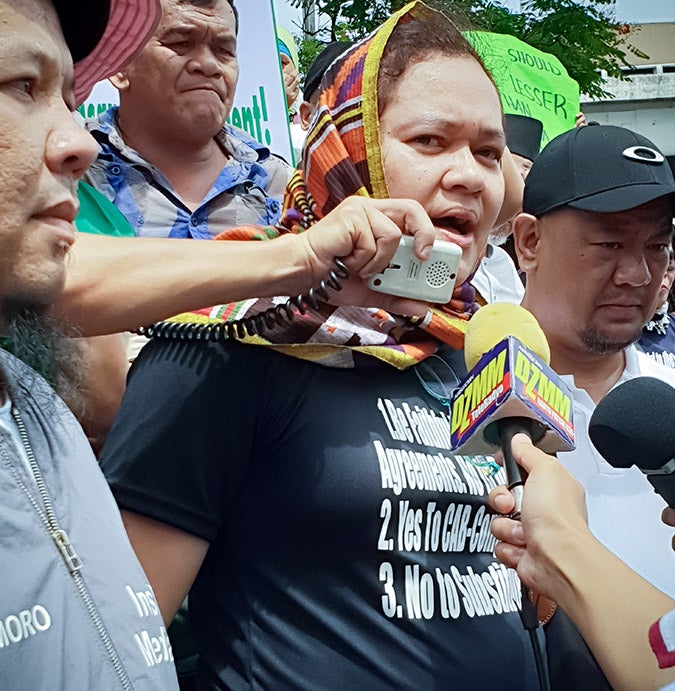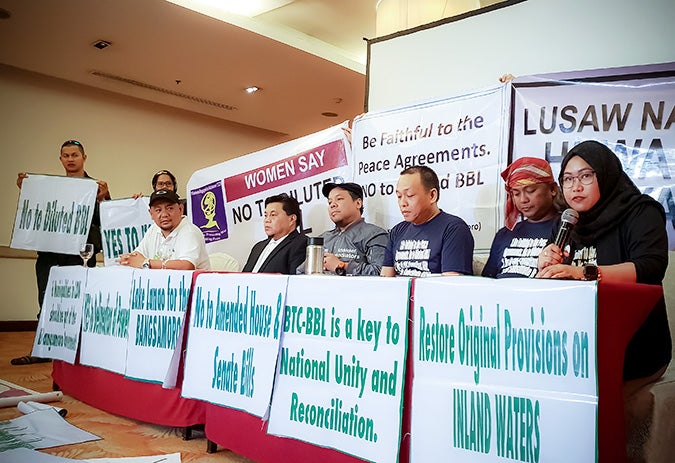Raising women and youth’s voices for peace in the Bangsamoro
Date:
Authors: Maricel Aguilar and Diana Kathrina Fontamillas
Manila, Philippines — In 2014, a bill was filed to create a new political entity in southern Philippines – to be called ‘the Bangsamoro’. The creation of the Bangsamoro was one of the key features of the peace agreement between the Government of the Philippines and the rebel group, the Moro Islamic Liberation Front. The bill to establish the Bangsamoro aims to fulfil the right of Muslim Filipinos in the country’s south to self-governance and autonomy. But with the eruption of violence in the region and a lack of consensus on the content, the bill has faced a long road of challenges to be passed into law.
In April 2018, UN Women created a Speakers’ Bureau, composed of women leaders it has been partnering with since 2016, to call for support for peace in the Bangsamoro and build awareness among Muslim diaspora communities of the importance of the passage of the Bill into law. In addition to learning about the proposed law, the women deepened their understanding of Bangsamoro history, the peace agreement, and transitional justice – crucial topics for diaspora communities that are isolated from national and regional conversations on the Bangsamoro to engage with. The women have also been trained on communications and advocacy to effectively deliver their messages to their target audiences. So far, four conversations in various diaspora communities in Mindanao have been conducted with members of the Speakers’ Bureau, reaching more than 400 number of participants.

While these community conversations are ongoing, the Bill was passed in Congress and in the Senate and a bicameral conference was convened in July 2018 to finalize the Bill before it is finally adopted as law. Four women leaders that have been part of the Speakers’ Bureau were supported by UN Women to participate in this final stretch of deliberations on the Bangsamoro Law and continue their advocacy together with other peace stakeholders in Manila to ensure the Law delivers their promised rights to self-governance.
Engaging with Muslim diaspora communities in Manila
“It is important that we understand the implications of the forthcoming law as it does not only affect us still living in the homeland but also, you, living here in Manila,” said Noraida Abo, Executive Director of UNYPhil-Women, a civil society group based in Cotabato City, as she addressed the women and men in a forum held in a masjid in Manila.
Most of the women and men attending this forum were migrants from Marawi City, one of the cities recently hit by violent extremist groups in southern Philippines. Poverty is the major reason why they left the city to continue their livelihoods as traders, however migrating to Manila equally poses challenges in accessing economic opportunities and overcoming prevailing stereotypes against Muslim Filipinos. The day-to-day struggles of diaspora communities make it difficult for them to participate in national and community conversations on the Bangsamoro. The forum enabled the women and men to learn of the current developments on the bill, appreciate its significance towards peaceful communities in the Bangsamoro, and eventually, decide to return and rebuild their lives in their homeland.

Participating in peaceful protests in support of the Bangsamoro law consistent with the peace agreement
Fatima Pir Allian, Program Director of Nisa Ul Haqq Fi Bangsamoro, a Muslim women’s organization based in Zamboanga City, highlighted that not only do Bangsamoro people contend with discrimination against their faith and ethnicity but, most importantly, with the lack of recognition of their rights. “The law on the Bangsamoro should clearly grant our right to self-determination, our right to lead our own people, our own land,” said Fatima as she led a group of Muslim Filipinos and other advocates in a protest that called for the passage of a law that is consistent with the peace agreement.

After the peaceful protest, Sittie Janin Balt of the Coalition of Moro Youth Professionals appealed to the bicameral committee to “give a law that can pacify the almost impatient youth.” She said that “we do not want another Marawi [conflict] to happen” and so the law must consider the aspirations of the Bangsamoro people, most especially the youth, who are at risk of joining violent groups to pursue their cause.

Engaging with other peace stakeholders in Manila
Aileen Hualde, an indigenous woman from Upi, in Maguindanao, joined in engaging with peace advocates and stakeholders. Indigenous peoples have been divided by the bill on the Bangsamoro as there are growing concerns that such legislative measure will trample on the rights of indigenous peoples especially over their own land.
“Indigenous peoples and Muslim Filipinos are siblings (in traditional mythology) and we both live on the same land. We are equally supportive of the Bangsamoro basic law as this struggle is not only the struggle of the Moros but also of us, indigenous peoples,” said Hualde.
To date, the Bill on the Bangsamoro is expected to be endorsed to both members of Congress and the Senate, to then be passed and approved by the President. It is hoped that the law will be consistent with the peace agreement and the aspirations of the Bangsamoro people. UN Women will continue its conversations in diaspora communities with the members of the Speakers’ Bureau like Noraida, Fatima, Janin and Aileen in the coming months, building constituencies for peace by women leaders across the Bangsamoro.